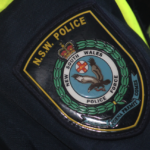The Offence of Making a False Representation to a Police Officer in NSW

A man from the Illawarra region is facing court over allegations he faked his own kidnapping on New Year’s Eve.
Police say they received a report at around 11.45pm on Saturday, 31 December 2022 that a 35-year old man had been kidnapped from Dombarton, a rural locality north-west of Dapton in the Wollongong Local Government Area.
A strike force was established to find the man, which police say involved “extensive efforts” on their part.
The man was located in Dapto at 10am on New Year’s day.
After undertaking investigations, police determined the man had fabricated the kidnapping and, on Thursday 12 January 2023 arrested and charged him with making a false representation that calls for a police investigation as well as making a false accusation.
The man will face Wollongong Local Court later this month to answer the allegations.
Unusual crime
It’s not often that people fake their own kidnappings, but it does occur, and is sometimes motivated by the desire for attention or even financial gain.
In 2021, Western Sydney man Raynor Earnshaw was charged with giving false information about a person in danger, making a false representation resulting in a police investigation, using a carriage service to menace and intimidation with intent to cause fear after he begged his mother to pay a fake ransom, claiming he had been kidnapped over a drug debt, when he was really seeking money to buy drugs. He was subsequently sentenced to 30 months in prison.
Fairlie Arrow
One of the most well-known fake-kidnapping cases in Australia occurred in Queensland in 1991, when a Gold Coast singer called Fairlie Arrow staged her own fake kidnapping. The kidnapping was miraculously solved just 48 hours after she went missing, when she was found after being ‘dumped’ on a rural roadside. However, shortly after police identified gaps in Ms Arrow’s story and realised that she had done it as a publicity stunt to resurrect her flagging career.
She was charged and police issued her with a bill for $18,000 for the cost of the police search and investigation.
Making a false representation that calls for a police investigation
Making a false representation calling for a police investigation is also known as ‘public mischief’, and is an offence under section 547B of the Crimes Act 1900 which carries a maximum penalty of 12 months in prison.
To establish the offence, the prosecution must prove beyond reasonable doubt that:
- You made a representation that an act had been or would be done, or that an event had occurred or would occur,
- Your representation was made to a police officer, or to a person other than a police officer and its nature reasonably required the person to whom you made the communication to communicate it to a police officer, and the person did communicate it to a police officer,
- Your representation was false,
- You knew your representation was false, and
- Your representation called for an investigation by a police officer.
Your representation may have been by any means, whether verbal, written or otherwise.
The offence generally applies to situations where false information results in the wasting of police time and resources.
Making a false accusation
Section 314 of the Crimes Act 1900 (NSW) (‘the Act’) makes it an offence punishable by up to seven years in prison to make a false accusation.
To establish the offence, the prosecution must prove beyond reasonable doubt that the defendant:
- Made an accusation against another person,
- By doing so, intended the other person to be subjected to an investigation,
- Knew accusation was false, and
- Knew the accused person was innocent.
The offence encompasses situations where a person makes a false complaint to police, knowing the person they are accusing is innocent of the accusation.
Going to court?
If you have been accused of making a false representation or complaint to police, call Sydney Criminal Lawyers 24/7 to arrange a free first conference with an experienced, specialist defence lawyer who will advise you of your options, the best path forward and fight to ensure you achieve the optimal outcome in your particular case.







